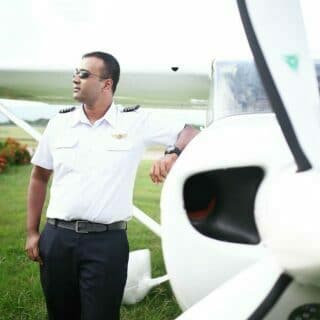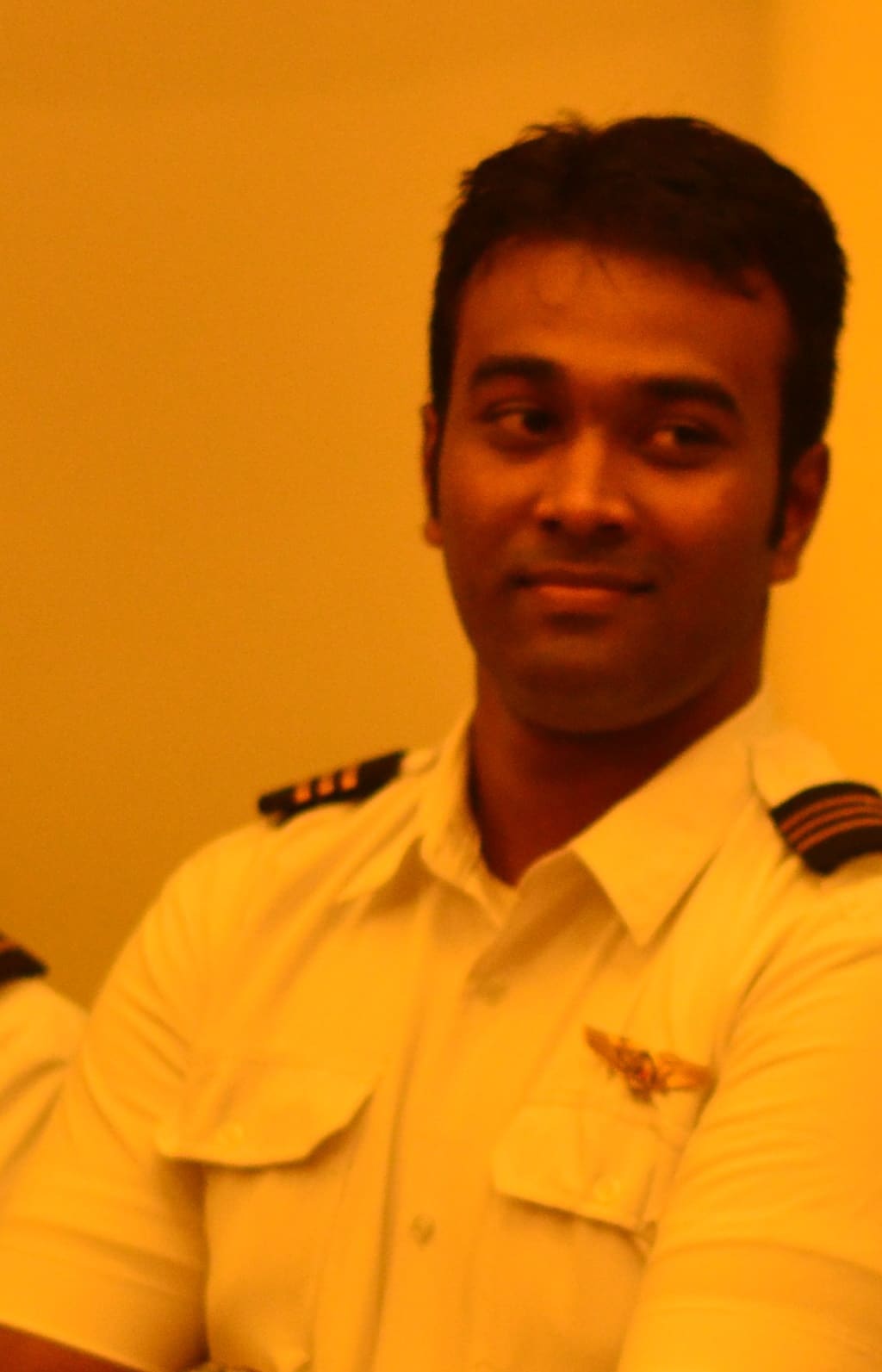PATH TO BECOME AN AIRLINE COMMERCIAL PILOT

Becoming a professional pilot is one of the most well-paying occupations in today’s country!
Being a flight instructor myself and training hundreds of student pilots from all over the world for commercial airlines every year, I feel that I have a good understanding of how to become an airline pilot involving deep dedication and perseverance. But being a pilot is so much better if you equate to wasting a great deal of money and energy obtaining a master’s or doctoral degree from a university.
Today Airlines, Charter companies, Flying academies all around the world are buying a lot of new fleets every now and then because of the very fast increasing demand for air travel every day all around the world.
You need the following conditions to participate in a commercial pilot program.
- 18 years old
- Medically fit which includes:
- Normal 20/20 vision or Corrected vision with eyeglasses
- Not Color Blind
- Not addicted to certain psychoactive medications (Cannabis, Marijuana, Alcohol, Opium, etc.)
- No major health issues (Broken legs/hands, heart problem, Kidney problem, Diabetic)
- High school diploma and capacity to speak and understand Simple English
There is confusion among many of my student pilots if they require a bachelor’s degree to become an airline pilot. Well, this is not true because you only need a 12th-grade certificate to become a commercial pilot in airlines. In fact, Commercial pilot training (CPL) is considered as equivalent to 4 years College degree (Bachelor in Aviation) in many countries.
But there are some major Airlines around the world who ask for bachelor degree if you join them as a First officer (FO) and most of the other regional airlines hire pilots who just have only CPL/IR license along with a high school certificate (12thgrade equivalent HSC/A level/GED).
Nowadays, Having around a thousand hours of flight experience in any regional airlines for a couple of years, pilots can apply in 90% major airlines all around the world even with a high school background because the interview for hiring pilots in airlines only focuses on Aviation knowledge, Flying skills, Situational awareness. Considering this, it seems having a bachelor’s degree is a sort of a waste of four/five years of time if all you want to become a commercial airline pilot.
The question is why path seems difficult to be pilot then!
The answer is money! Well, because getting a commercial pilot license (CPL) and prepare yourself for the airline would cost you a good amount of money. This might be a huge investment for a student pilot who comes from a middle class or poor family. But do not be afraid if that is so. If you are determined and committed, you can reach your goal in just two years of time even with a minimum investment because many small charter company or some airlines look for sharp fresh graduated dedicated pilots and those companies are willing to pay for your training if you can please the interviewer and convince them that you have an excellent attitude, willing to perform your best and take smart decision in critical lifesaving situation.
From my experience through the aviation industry for a few years, you only need around 50,000 US Dollars to acquire a commercial pilot license to apply for airline companies. Remember that you always need to be focused during your training and acquire a great deal of knowledge from your fellow students and flight Instructors so that you can pass a standard airline interview.
Keep a note on this! Do not look for the cheapest flight school or academy because most of them will not give you quality education or high standard flight training and you will be spending your money in vain learning nothing or lesser not worth of the money you have spent for training and you might be also not responsible enough as a pilot in command and taking a lot of risks of lives while flying along with your passengers and yourselves. Most of the general aviation crashes happen due to poor pilot cockpit management which is related to poor pilot training standards. So, my suggestion is to try to be somewhere in the middle if you do not have a great budget but you are committed to becoming a great pilot. You also need to consider if the accommodation and food cost is within your budget when you want to be a trained pilot abroad. This is why you need a proper guideline from senior pilots or Instructors and I can guide you here with the rest of all your questions.
I would suggest do not just choose a good school but also consider the location of your academy where you might not need to spend a lot of money on accommodation and food. I also suggest looking for a great location where you might have many extracurricular activities with different people from all around the world because those small activities aside from schooling will keep you always motivated towards your career goal and will teach you a great deal about practical life.
So, the best thing may be to have a mentor who is an expert in this field and study the background of your flight school, location abroad, and other factors before you finally decide to enroll. You may also talk to flight Instructors or successful pilots who graduated from there and working in different aviation companies. Be aware of scams. You may ask for proof or their company IDs to make sure of the current background of the senior pilots before you decide to follow his advice.
While thinking of taking flight training abroad, you should also consider the faster route which should not be more than two years because staying longer abroad, you need to spend more on your living expenses.
Now since you have some ideas about how to enroll and when to start, let’s prepare yourself well before you even start your training. You may start watching aviation related videos on the YouTube channel and start reading aviation related articles because there is a great deal of knowledge given online.
Let’s talk about the steps of your training. To acquire a commercial pilot license, you must need to acquire a private pilot license first. And it is very simple. You need to take a private pilot ground course for about one or two months and you will be given a student pilot license so that you can start your flight training with a certified flight instructor. You will be released for your first solo flight by your assigned flight instructor once you demonstrate you have learned all the basics of an aircraft theory and basic flying skills. Upon achieving around 40-50 hours of flight time, you will take all theory exams (9-10 subjects) in Civil Aviation Authority and you have to take a private pilot check ride test with a civil aviation authorized Check pilot examiner. Once the check pilot gives you passing marks on your flight skills and submits his grading marks in Civil Aviation Authority, you will be given a private pilot license (PPL).
Once you have a private pilot license, now it is time to do hour-building and you may need to fly around 100 to 150 hours of flight time more to apply for Commercial pilot license (CPL). The process to apply for CPL license is similar to Private pilot training stages and you will be taught all those same subjects again but in more detail and advance level. Your flight lessons will be also complex maneuvers which are an advanced level of flying skill.
In order to apply in airlines, you also need to have Instrument flight training (IFR) which should be included in your Commercial pilot license. An Instrument rated pilot can fly in low visibility, poor weather and during night time by solely relying on only aircraft’s flight instruments. In order to have an Instrument Rating (IR), you need to go through the same process as you have taken in a Private pilot training course. But the Instrument pilot training course is very short but may seem very complex. This is where you need to study hard and have a good visual perception in flying and this will mostly prepare you for airline Interviews.
Remember that Airline jobs come with great responsibility because flying a commercial jet means you will carry a lot of lives on board. Having an Instrument rating with good knowledge will prepare you almost to get there.
So now you have a commercial pilot license with an instrument rating. I would suggest this would be the time that you keep your resume updated and keep applying everywhere simply just sending your resume walk-in or online. Try local companies and even aboard because sometimes they might just call you for a skype interview and if you can satisfy the interviewer, your career starts here. But do not be disappointed if you could not pass the interview because every failure gives you a lesson and prepare you for better. So, simply just keep applying. Remember that a good pilot never stops learning!
Sometimes you might not be lucky to get in the Airline industry just after you have graduated. In that case, you may choose to become the followings:
- A FLIGHT INSTRUCTOR (FI) career because they are considered one the most knowledgeable guys in Aviation Industry and working as FI prepares them for any kind of pilot jobs (Cargo, Charter, Bush, Corporate, Airlines) around the world.
- CADET PILOT for Airlines but you need to have a self-sponsored type rating for bigger airplanes which would cost you some extra money.
- CHARTER PILOT to acquire more flight hour experience so that you can gain experience and at the same time may apply in regional airlines without having a self-sponsored type rating.
I have a piece of good news for student pilots who choose flight training in the Philippines. Because the Philippines hire a lot of foreign fresh graduate commercial pilots if you complete your training from the Philippines. Most of the airlines in countries like the Philippines, Vietnam, Indonesia, India, Nepal, and Bangladesh also hire commercial pilots if you come from the Philippines. And these countries ask for only 200 hours of flight time to hire you. But if you chose to do your training from other countries like Europe, USA, and Canada, you would most likely to work in the airlines in your home country because those first world countries most likely do not hire foreign pilots. They give priority to their own nationals who speak the native language. But it’s much easier to get jobs as captain rather being a first officer in many airlines around the world regardless of your nationality, religion, age and previous training locations.
AUTHOR
Capt. Anwar Parvez
Certified Flight and Ground instructor

